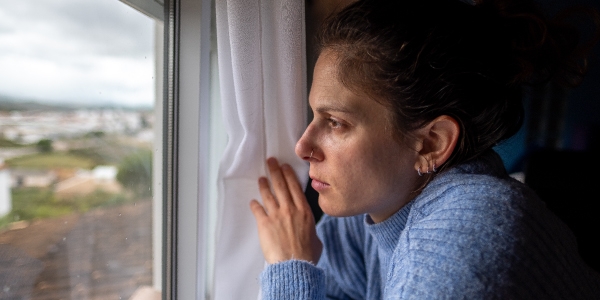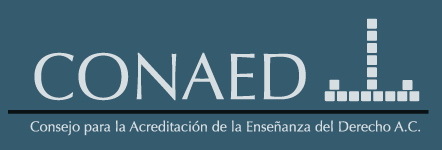Can any type of confinement be considered “good”?

Translated from Spanish by Katrina Rebecca Heimark, researcher at the Instituto de Investigación Científica (IDIC) and translator.
The COVID-19 pandemic and its lockdown measures present a great challenge to mental health and wellbeing around the world. COVID-19 is an infectious disease discovered in late 2019 in the Chinese province of Wuhan, and since that date, has spread to at least 213 countries. As of September 11, 2020, national and international institutions have confirmed more than 911,000 deaths and more than 28 million cases of the disease (World Health Organization, 2020). Although public health recommendations vary by country, a general order to stay home so as to avoid unnecessary social activities and big gatherings has been widely imposed on approximately one third of the human population. Global containment measures have been implemented but without any specific plan to protect people’s mental health and well-being. One of our studies on the effect of confinement in French students, forthcoming in the Journal of Behavioral Addictions, finds that the stress of confinement is a past and future predictor of binge and restrictive eating. Confinement also has an impact on depressive symptoms and anxiety, especially among young and vulnerable people. Despite this, there is still time to act and adapt our educational and public health policies to the data we have from previous epidemics (SARS, MERS, etc.), as well as data from the COVID-19 pandemic.
In our study of more than 5000 French students, the stress of confinement is associated with a higher probability of binge and restrictive eating in the week prior to the study taking place, as well as with the intention to continue this behavior over the following 15 days. Increased exposure to COVID-19 related news is linked to higher restrictive eating during the previous week. Other classic risk factors in the literature—such as being female, poor impulse regulation and negative body image—increased the risk of post-confinement eating disorders. Both the early detection of high-risk individuals and therapies linked to those environmental stress factors created by the COVID-19 pandemic could help reduce these toxic eating habits.
However, these consequences were in part, to be expected. On February 26, 2020, the prestigious medical journal The Lancet published a rapid review of the diverse psychological stress factors that have been identified in the prior SARS, MERS and, in particular, the Ebola epidemics. This review, conducted by Dr. Brooks of King’s College London, indicates that previous studies saw symptomatic effects of post-traumatic stress disorder when isolation lasted more than 10 days. [1] Samantha Brooks and her colleagues examined 24 studies on the effect of isolation in prior epidemics and identified some risk factors prior to quarantine. Previous psychiatric care, for example, was predictive of anger and anxiety for up to 6 months after the end of isolation. Health care workers were particularly affected by post-traumatic stress factors, as they felt more stigmatized and also reported higher economic losses (although one study conducted during the SARS outbreak in Toronto did not replicate these findings [Hawryluck et al., 2004]).
Other factors that impacted the mental health of confined individuals included the time of confinement (more than 10 days), fear of becoming infected, frustration or boredom associated with changing routines, lack of social and physical activity, and a general feeling of isolation (Brooks et al., 2020). Difficulty in accessing basic resources (such as food, clothing, and water) and personal protective equipment (such as facemasks) are generally associated with symptoms of anxiety months after the end of quarantine.
The guidelines, their coherence, and the style in which data was communicated, as well as the coordination of preventative information at the local and national level were also relevant stress factors during the SARS epidemic in Toronto (DiGiovanni et al., 2004). Finally, the economic impact of confinement, whether as unemployment, partial reductions in salaries, or delays in the allocation of local or state aid, were also key factors in post-traumatic stress. In terms of healthcare workers, many they felt they had been stigmatized, and on occasion, even rejected by their local community long after the end of the official quarantine period.
Recent studies on the use of social isolation measures during the COVID-19 epidemic seem to indicate that the psychological impacts of social isolation are strongest among young adults in Japan (<39 years old; Yamamoto et al., 2020), Austria (<35; Pieh et al., 2020), Spain (<30; Ozamiz-Etxebarria et al., 2020) or even China (<40; Ahmed et al., 2020). In the IDIC, we are concluding a longitudinal French and Peruvian study in which we follow up with individuals at several moments during quarantine, and one month after its official end. We are trying to explore if one’s capacity to regulate and control positive and negative emotions is a protective factor during times of isolation. We are also testing the hypothesis that the social-environmental factors in quarantine—such as housing type, available space, the residents of the home, and location (rural vs. urban), represent protective factors for our mental health. There is still time to organize and create living spaces, economic redistribution, and public health information that could promote a so-called “good confinement”.
| Cite this post (APA, seventh edition): Boudesseul, J. (2020, September 14). Can any type of confinement be considered “good?” Scientia et Praxis: Un blog sobre investigación científica y sus aplicaciones. https://www.ulima.edu.pe/en/idic/blog/can-any-type-of-confinement-be-con... |
Note
[1] In France, quarantine lasted just over 50 days, and in Peru, more than 100 days.
References
Ahmed, M. Z., Ahmed, O., Aibao, Z., Hanbin, S., Siyu, L., & Ahmad, A. (2020). Epidemic of COVID-19 in China and associated Psychological Problems. Asian Journal of Psychiatry, 51, 1-7. https://doi.org/10.1016/j.ajp.2020.102092
Brooks, S. K., Webster, R. K., Smith, L. E., Woodland, L., Wessely, S., Greenberg, N., & Rubin, G. J. (2020). The psychological impact of quarantine and how to reduce it: rapid review of the evidence. The Lancet, 395(10227), 912-920. https://doi.org/10.1016/S0140-6736(20)30460-8
DiGiovanni, C., Conley, J., Chiu, D., & Zaborski, J. (2004). Factors influencing compliance with quarantine in Toronto during the 2003 SARS outbreak. Biosecurity and bioterrorism: biodefense strategy, practice, and science, 2(4), 265-272. https://doi.org/10.1089/bsp.2004.2.265
Flaudias, V., Iceta, S., Zerhouni, O., Rodgers, R.F., Billieux, J., Llorca, P-M., Boudesseul, J. … & Guillaume, S. (2020). COVID-19 pandemic lockdown and problematic eating behaviors in a student population. Journal of Behavioral Addictions.
Hawryluck, L., Gold, W. L., Robinson, S., Pogorski, S., Galea, S., & Styra, R. (2004). SARS control and psychological effects of quarantine, Toronto, Canada. Emerging Infectious Diseases, 10(7), 1206. http://dx.doi.org/10.3201/eid1007.030703
Ozamiz-Etxebarria, N., Idoiaga Mondragon, N., Dosil Santamaría, M., & Picaza Gorrotxategi, M. (2020). Psychological symptoms during the two stages of lockdown in response to the COVID-19 outbreak: an investigation in a sample of citizens in Northern Spain. Frontiers in Psychology, 11, 1491. https://doi.org/10.3389/fpsyg.2020.01491
Pieh, C., Budimir, S., & Probst, T. (2020). The effect of age, gender, income, work, and physical activity on mental health during coronavirus disease (COVID-19) lockdown in Austria. Journal of Psychosomatic Research, 136, 1-9. https://doi.org/10.1016/j.jpsychores.2020.110186
World Health Organization. (2020). Brote de enfermedad por coronavirus (COVID-19). https://www.who.int/es/emergencies/diseases/novel-coronavirus-2019
Yamamoto, T., Uchiumi, C., Suzuki, N., Yoshimoto, J., & Murillo-Rodriguez, E. (2020). The psychological impact of “mild lockdown” in Japan during the COVID-19 pandemic: a nationwide survey under a declared state of emergency. medRxiv. https://doi.org/10.1101/2020.07.17.20156125
































Deja un comentario